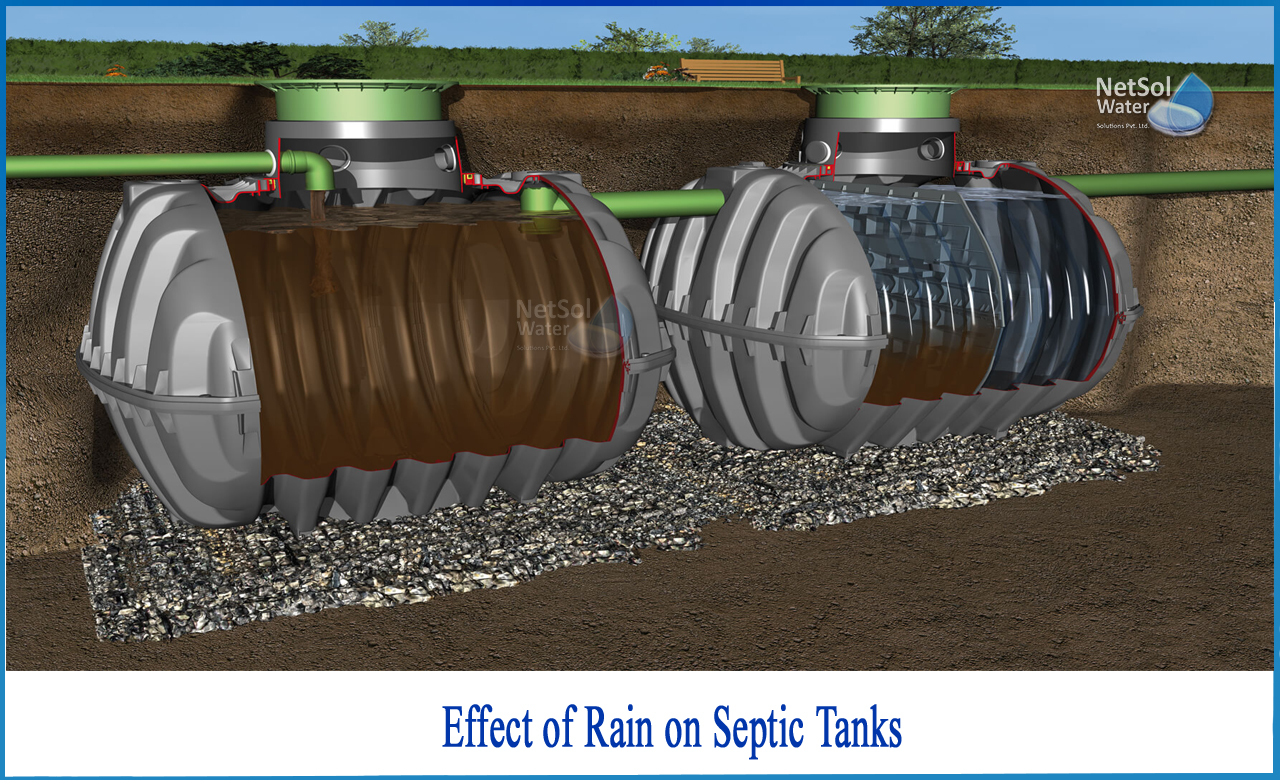Can rain affect my septic tank?
Yes! Flooding can be caused by heavy rain or other water sources that oversaturate the soil surrounding your septic tank. When your septic tank system floods, contact a septic tank specialist immediately.
Septic tanks are made up of three main components
Inlet pipe: This line transports waste from all of your house's drains to the septic tank.
Tank: The waste is held in an underground two-chamber tank while it separates into sludge, scum, and effluent (liquid).
Drain field: Effluent is released into the soil via a perforated conduit for biodegradation. Specialists pump solids on a regular basis.
As bacteria break down the solid waste, it sinks to the bottom of the tank and produces sludge. Scum is formed when grease and lighter solids float to the surface. The liquid substance, also known as Effluent, flows from the drain field into the soil and is cleansed by bacteria on a typical, non-rainy day.
Excessive water in the soil is caused by heavy rain. This reduces the drain field's capacity to discharge liquids, or effluents, into the soil, resulting in dangerously high liquid levels in the tank.
Is rain flooding my septic tank?
Rain can wreak havoc on septic tanks for a variety of reasons. One of the most significant is that a significant increase in rainfall might force your septic tank to physically come out of the earth! If you're picturing your septic tank shooting into the air like a rocket, don't worry: it's not as dramatic as it sounds.
It will usually raise out of the earth — sometimes only a few inches, sometimes many feet. Because any form of off-the-grid drainage tank might be harmed by severe rain.
Any form of off-the-grid drainage tank might be harmed by severe rain!
Unfortunately, it isn't as simple as gathering all of your pals and using some elbow work to get it back to where it belongs. When this happens, the line connecting your house to the tank shears, allowing all of your waste to flow directly into the ground – or into the hole that your tank has left behind. The tank must be linked to any pipelines that flow in or out of it, so getting it back in the ground is a major undertaking.
So, what additional indicators of rain influencing your septic tank should there be?
The trouble about septic tanks is that you don't always realize there's a problem until you start to see issues above ground. Heavy rain, however, may frequently bring septic tank issues to the surface. If your septic tank has been damaged, such as by a fracture in the wall, you may not realize it until a rainfall causes ground water to gush in, causing your tank to need emptying more frequently.
As always, the best thing to do is keep an eye out for any warning signals of trouble!
-Your septic tank requires more frequent emptying than normal.
-Above your septic tank or soakaway, there are muddy areas of earth.
-Your toilets are taking longer to flush than normal, or your pipes are gurgling.
The first step is to have your septic tank drained, since this may help to solve the issue.
Because flooded tank symptoms are similar to those of a clogged pipe or a tank that requires pumping, it can be difficult to detect if flooding is creating problems with your tank. If you've lately had a lot of rain and are having trouble getting water to flow correctly in any of your drains, it's possible that your tank is flooded.
Netsol Water is Greater Noida-based leading water & wastewater treatment plant manufacturer. We are industry's most demanding company based on client review and work quality. We are known as best commercial RO plant manufacturers, industrial RO plant manufacturer, sewage treatment plant manufacturer, Water Softener Plant Manufacturers and effluent treatment plant manufacturers. Apart from this 24x7 customer support is our USP. Call on +91-9650608473, or write us at enquiry@netsolwater.com for any support, inquiry or product-purchase related query.



